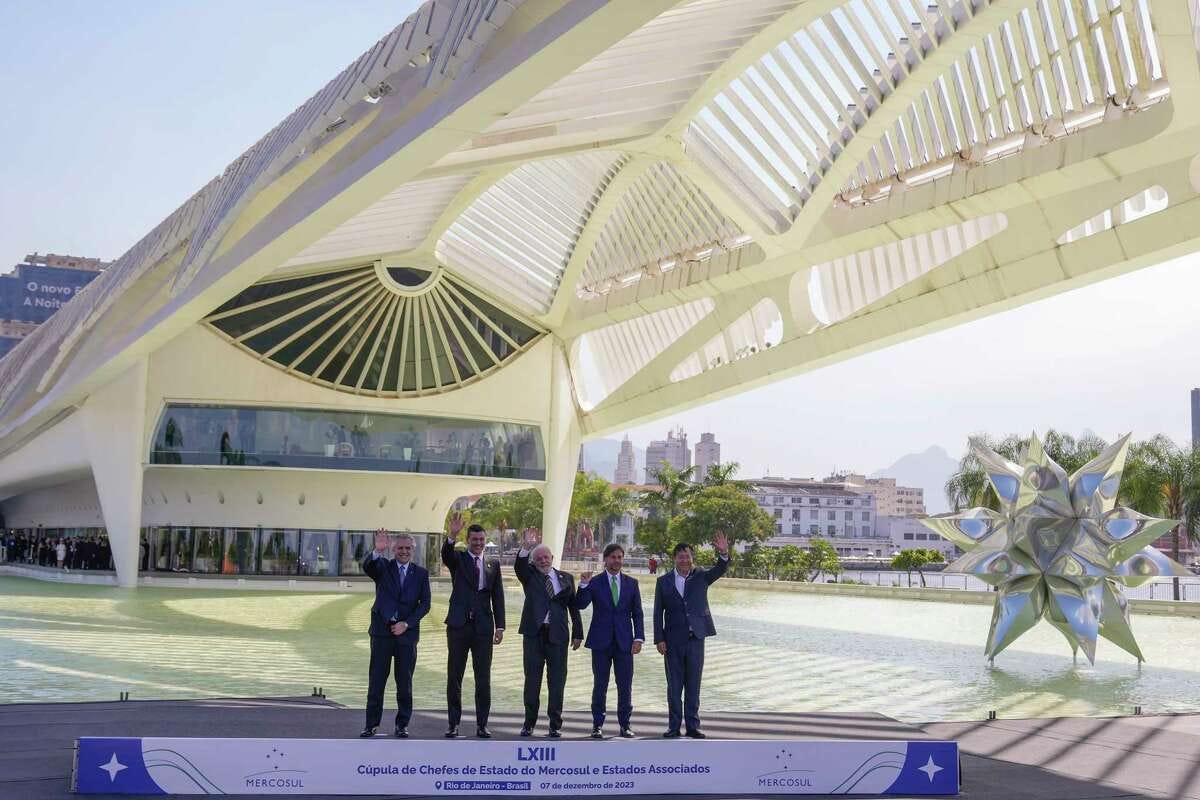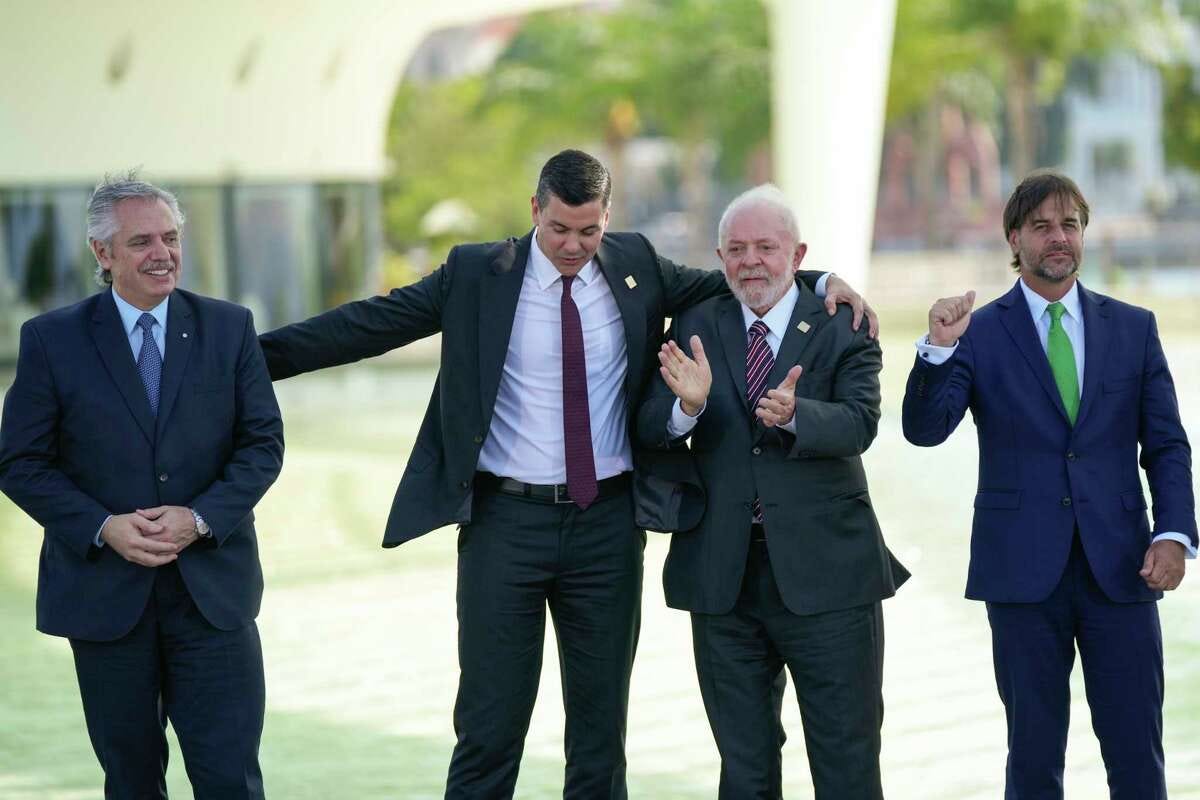Mercosur-EU Trade Deal: Elusive Consensus in the Heart of Rio
Navigating the Turbulent Waters of South America's Economic Ambitions and Political Realities.

Introduction
The heads of state from South America's Mercosur trade bloc convened in Rio de Janeiro. Yet, the anticipated momentum toward finalizing a long-awaited trade deal with the European Union seems to have once again slipped through the cracks. The complexities of negotiations, member states' diverging interests, and the region's political shifts have created a challenging landscape. This article delves into the intricacies surrounding the Mercosur-EU trade deal, examining the hurdles, geopolitical dynamics, and the potential consequences of yet another setback.
Section I: The Pivotal Negotiations
Subsection 1.1: High Hopes and Opposition
Negotiations with the European Union took center stage at the Rio meeting, with host Brazil aiming for a swift conclusion to the deal. However, Argentina, the bloc's second-largest economy, has thrown a wrench into the plans, opposing the agreement as the outgoing government. President-elect Javier Milei, a libertarian populist set to be sworn in, offers a potential shift in support but adds an element of uncertainty to the proceedings.
Subsection 1.2: Lingering Skepticism and Hurdles
Despite a joint statement expressing "constructive discussions," the wording suggested that a deal wasn't imminent. The historical backdrop of failed attempts, including a basic agreement in 2019, raises skepticism about the potential for a consensus. The divergent demands on environmental protection, coupled with concerns about an influx of cheap goods, continue to stall progress.
Section II: The Advocates and the Detractors
Subsection 2.1: Lula's Advocacy and International Support
Former Brazilian President Luiz Inácio Lula da Silva has been a vocal advocate of the Mercosur-EU agreement, aligning with Spain and Germany in pushing for its realization. His enduring commitment to the deal, spanning two decades, underscores the significance he places on this economic integration. The potential inclusion of more than 700 million people and substantial GDP highlights the stakes involved.
Subsection 2.2: Argentina's Dilemma and Milei's Transition
Argentina's hesitance under its current government has been a stumbling block, with concerns about the impact on manufacturing and agricultural exports. The incoming administration of President-elect Javier Milei signals a potential shift, but questions linger about the modifications required to secure his endorsement. The internal dynamics within Argentina contribute to the overall uncertainty.

Section III: Economic Woes and Regional Strategies
Subsection 3.1: Economic Fallout and U.S. Sanctions
The economic downturn in Syria, exacerbated by U.S. sanctions, adds another layer of complexity to the multifaceted conflict. The impact of sanctions, coupled with the protracted civil war, has created an environment of financial instability. As external actors engage in the geopolitical chess game, the Syrian population grapples with economic hardships, further fueling the challenges faced by the warring factions.
Subsection 3.2: Stalemate in the Civil War
The nine-year civil war in Syria has shown little sign of resolution, creating a protracted conflict with no clear end in sight. The diverse array of actors involved, including Russia, Turkey, the United States, and various internal factions, has contributed to the situation's complexity. The lack of a decisive and lasting strategy on any side perpetuates the cycle of violence and uncertainty in the war-torn nation.
Conclusion
The elusive Mercosur-EU trade deal remains a pivotal point in the economic ambitions of South America. The intricacies of negotiations, the shifting political landscapes within member states, and the challenges of aligning divergent interests underscore the complexity of reaching a consensus. As leaders engage in high-stakes discussions, the fate of a deal that could reshape regional economic dynamics hangs in the balance. The Global Trotter will continue to closely monitor these developments, providing nuanced insights into the evolving narrative of South America's economic aspirations. Subscribe now to stay informed about the geopolitical currents shaping the destiny of this crucial region.




